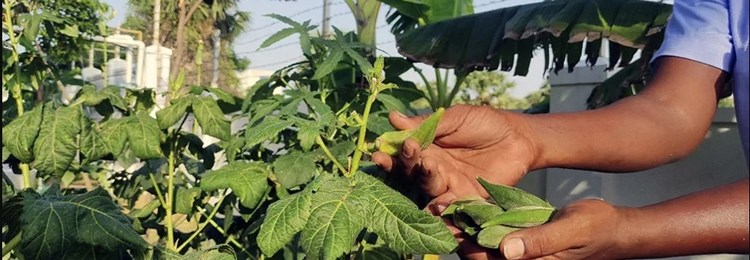
A green oasis in the factory grounds
Date: Friday 08 July 2022
A metropolis with millions of inhabitants, Chennai is located in the south of the Indian subcontinent. Due to the important automotive companies located there, it’s also known as “India’s Detroit”. Freudenberg-NOK Pvt. Ltd, a unit of Freudenberg Sealing Technologies, build a plant in Chennai several years ago. After all, Freudenberg seals are in demand in India’s auto industry, and the location guarantees that the plant’s products only have to travel short distances to reach its customers.
High quality water treatment in the era of sustainability
A state-of-the-art Effluent Treatment Plan (ETP) has been operating on the factory grounds since January 2020. It treats the industrial water generated by the Chennai plant’s phosphatization facility. In the process, the steel carrier parts for certain seals are dipped in a dilute solution to clean them.
The benefit: Phosphatization protects metal parts from corrosion. This step enables seals to maintain their function as long as possible. For its part, the use of the ETP ensures that the wastewater is cleaned so thoroughly that it can be used for other purposes in the factory’s processes. Especially in Chennai, that is no small advantage: like many other cities in India, it is heavily dependent on monsoon rains. If they don’t arrive on time or are less abundant than usual, the shortfall can affect the region’s water supply.
Accordingly, the ETP at the Freudenberg site is taking an approach that is both significant and sustainable in qual measure. It is not only possible to safely reuse the treated effluent – the system also helps the Chennai site conserve water. The heat wave that struck wide swaths of India in the spring of 2022 highlighted the need to deal especially carefully with water as a resource. Shortly after the completion of the ETP, Chennai’s management highlighted the importance of sustainable operations, spurring the formation of a “Corporate Social Responsibility” team. Once the CSR team took shape, it coordinated employee training.
“With these measures, we wanted to create an awareness of how important it is to conserve the environment and natural resources,” said Jagannath Umapathy, a member of a team that helps to get sustainability projects rolling. “After all, we absolutely have to preserve the environment for future generations.”
The men pressed ahead with the plant’s “greening” in their free time, and, all in all, they planted more than 500 fruit and vegetable seedlings. The management provided financial support for the purchase of the plants. Just a few months later, the area around the ETP was hardly recognizable. There are now brightly colored flowers, huge banana trees, large growths of eggplant, and many okra plants – whose pods resemble peppers – in an area where just a few trees had previously stood out against the monochromatic facade of the ETP. It is as though the scenery had been splashed with color. Birds and insects are already busy conquering their new habitat. Employees also use the grounds as a fruit and vegetable garden. “We are literally harvesting the fruits of our labor,” said Prabhakar Bulbule, one of the participants. “It is beautiful and, at the same time, immensely satisfying to see the results of our work.”
The project was met with a positive response from employees – and not just because they received a share of the fruit and vegetables. The “greening” of the facility transformed it into a popular site for employees to visit when they take their breaks.
Whatever the future scope of the project, it has already generated a positive response beyond the plant’s boundaries. For 20 years, the Freudenberg Group has been encouraging employees at all its sites to participate in processes to raise the level of their facility’s sustainability. The focus was initially on occupational safety, but now encompasses health and environmental protection as well. Year after year, the plants gather their best ideas and submit them as part of a group-wide competition,
“We all take care!"
